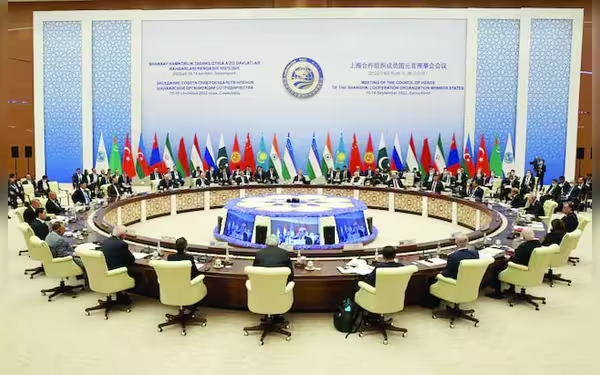Thursday, November 7, 2024 02:38 PM
SCO Military Exercises Signal Shift in Geopolitical Dynamics
- Central Asian SCO members conduct war games without Russia and China.
- Shifts in alliances reflect nations prioritizing national interests.
- Developments may reshape future of international relations.
 Image Credits: tribune.com.pk
Image Credits: tribune.com.pkCentral Asian SCO members' military exercises without Russia and China indicate a significant shift in geopolitical dynamics.
The Shanghai Cooperation Organization (SCO) has been a significant player in international relations since its inception. Formed in 2001, the SCO aims to promote cooperation in various fields, including security, economic development, and cultural exchange among its member states. However, recent developments have raised eyebrows, particularly regarding the dynamics between the SCO and its member countries, especially the former Soviet states.
In July 2024, a notable event unfolded in the Caspian Sea region. The Central Asian members of the SCO conducted their first war games, named "Birlestik-2024," without the participation of Russia or China. This move signals a shift in the geopolitical landscape, as these nations appear to be asserting their independence and military capabilities. The absence of Russia and China, two of the most influential members of the SCO, raises questions about the future cohesion of the organization and the strategic interests of its members.
Moreover, the situation mirrors the complexities seen within the ASEAN bloc, which has established a Free Trade Agreement (FTA) with China. Despite having ideological and geopolitical differences with Beijing, ASEAN countries have managed to maintain a working relationship, leaning towards the United States and Australia for support. This balancing act highlights the intricate web of alliances and rivalries that characterize modern international relations.
The developments within the SCO and the ASEAN bloc illustrate a broader trend in global politics: nations are increasingly prioritizing their national interests over traditional alliances. As countries navigate their relationships with major powers like China and the United States, they are finding new ways to collaborate while also asserting their sovereignty.
The recent military exercises conducted by Central Asian SCO members without Russia and China signify a pivotal moment in the organization's history. As nations continue to redefine their alliances and strategies, it is essential to monitor these changes closely. The evolving dynamics within the SCO and similar organizations will undoubtedly shape the future of international relations, making it crucial for observers to stay informed and engaged with these developments.













